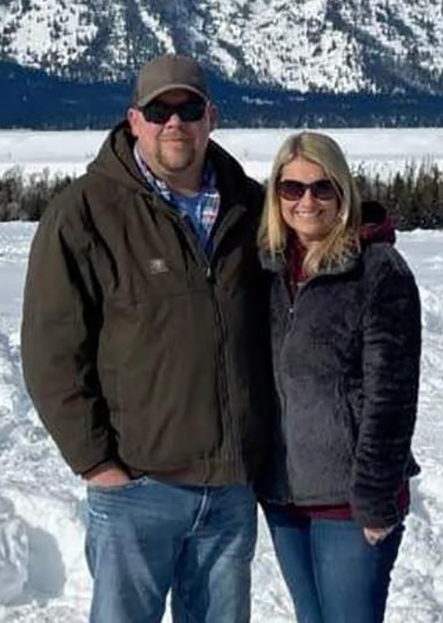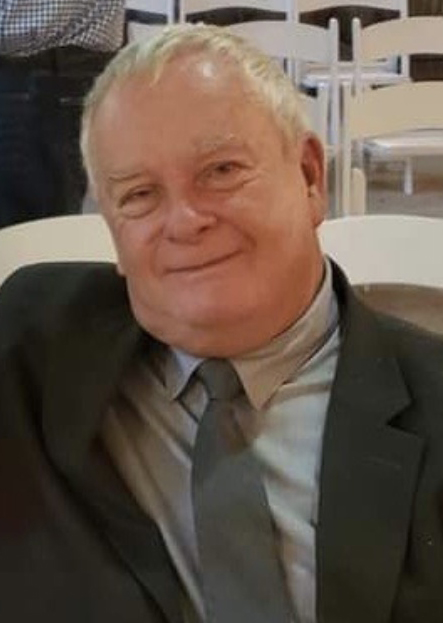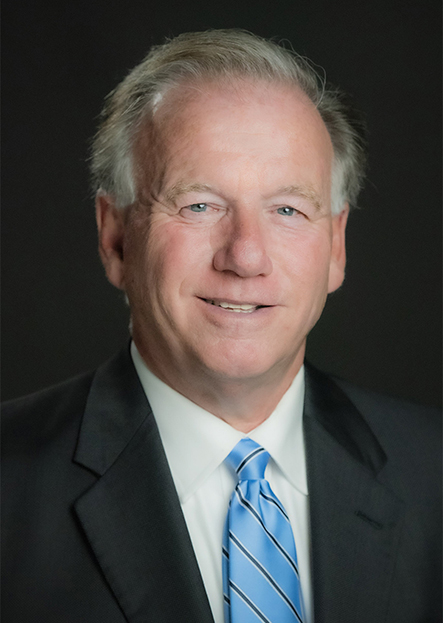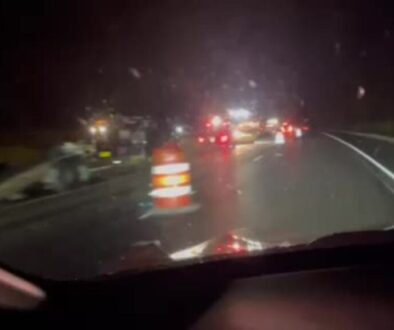ARDOT LEADS EFFORT TO PROTECT ROAD WORKERS

Jeremy Bolt still has nightmares about Dec. 8 last year when he and his wife Mitzi could have died while working as part of a crew on an Arkansas road project. In the dream he feels pieces of debris flying at him from a nearby crash and he is fighting to avoid cars racing toward him. While he and his wife survived, they will never look at life quite the same. Their colleague, Kurt “Jonathan” Cottier, was hit by a car that night and succumbed to his injuries 11 days later.

Jeremy and Mitzi Bolt
Cottier was 28. He had only been working with the Arkansas Department of Transportation for three months when he was hit by a car while working on Interstate 40 in rural Conway County. The driver of the car was 89-year-old Martin Peterman of Stillwater, Okla.

Kurt “Jonathan” Cottier
Peterman was traveling westbound on I-40. It was approximately 1:40 in the morning when his small car drove past the orange barrels and entered the work zone. The roads were dry and the weather clear.
Jeremy and Mitzi were just feet away at the time of the incident. The Bolts were working for Level Best of Hermitage, doing the grind work on the job. A grinding company uses a sophisticated piece of equipment to smooth over the bumps where one section of new asphalt meets the next.
Cottier was standing outside an ARDOT truck talking to his supervisor who was sitting in the truck when Peterman’s vehicle hit him. Bolt felt a piece of plastic from the initial crash hit the back of his leg and he turned to see Cottier injured, and the Peterman vehicle now headed toward him. Bolt was able to push himself off the moving car and then watched Peterman start to drive away.
Bolt ran to the still moving Peterman vehicle and started pounding on the trunk telling him to pull over. Peterman finally stopped.
Bolt says, “I started running to my truck to go after him, but I caught up to his car before reaching my truck. He was driving alone, he just looked very confused, and I had to tell him he hit someone. God was looking out for us that night. My wife was working near the grinding site, and I had urged her multiple times to take a break. She finally did and went back to our truck. God sent me to get her out of there. If she hadn’t moved, I have no doubt she would have been hit.”
The report filed by the Arkansas State Trooper working the accident checked a box that indicated Peterman engaged in “inattentive, careless, negligent or erratic operation” of a vehicle. A second checked box said Peterman was “driving in a lane that was barreled off for closure.”

Cottier was airlifted to UAMS and never woke up before he passed away on December 19th. His family buried him on Christmas week. A post on an online memorial site said he went through life with an “infectious smile.”
‘Everybody Drives So Fast’
Kelly Cottier remembers her son as someone always willing to help others. “He was really the sweetest, kindest boy you could ever have,” she said. “He would do anything for anybody. He could fix anything. He enjoyed hunting and hiking and he was always interested in Arkansas history. He would go to all these historical sites. It was nice to have somebody to mow your yard and do the weed eating and fix the cars.”
Jeremy Bolt speaks softly when he talks about Jonathan and his belief that God pushed him to get Mitzi out of the spot where moments later Cottier would be hit. Speaking on the phone about the crash, Bolt steps out of his house to stand in the yard while we speak. He says, “Mitzi is still having a real hard time. We both are. It’s just easier if she doesn’t hear me go through all this again. This was actually the third incident we have been involved in working on I-40. Our equipment was hit by vehicles at two other job sites.”
Kelly Cottier says her son was aware ARDOT always has safety procedures in place, but some drivers still don’t pay attention. “He said everybody drives so fast, people were always knocking down the barrels and stuff like that,” she said. “He said even though sometimes there was a State Trooper there at the end of the construction zone, people just drive right by, and they don’t even care. They didn’t even slow down or nothing. He was airlifted to UAMS and never woke up after that.”
As of this writing no charges have been filed in a crash that killed the young man with the bright smile.
The Cottier story is tragic, but not unique. Six weeks after Cottier was struck and killed, longtime ARDOT worker Winfred Petty was hit and killed by an SUV while working a job site in Little Rock. The driver sped away. Petty was 69 years old and had worked at ARDOT for 25 years. In the early evening of Jan. 17 Petty was putting up construction signs on Interstate 30.

Winfred Petty
Nine days after the fatal hit and run, Arkansas State Police arrested 37-year-old Crystal Johnson of North Little Rock. She was charged with leaving the scene of an accident and filing a false police report.
The Arkansas State Police accident report says there were “no signs of braking” by the vehicle that struck Petty. Petty was wearing an orange reflective vest as he crossed the highway. He was struck at 8:20 p.m. and was pronounced dead 40 minutes later at UAMS.
In the obituary, the grieving Petty family asked that in lieu of flowers, friends and family make donations to the Arkansas Crime Victims Compensation Fund.
The Arkansas State Police are not part of ARDOT, but the troopers, as well as the men and women in the Arkansas Highway Police, know what it’s like to work beside an interstate with traffic moving fast. The troopers didn’t know Winfred Petty personally, but they had shared the roadside workplace with him.
Auto ID Data Base
Police agencies investigating hit-and-run accidents have made progress in recent years partnering with auto manufacturers to create a unique auto identification data base. Chips of paint or small pieces of a vehicle left at a crash site can be traced with remarkable accuracy to a part or paint used on a specific vehicle produced on a certain date at a specific production facility. This technology is helpful for officers looking for a vehicle that left the scene of an accident.
Arkansas State Police spokesman Bill Sadler says, “There is an amazing level of cooperation now between auto manufacturers and police agencies to precisely identify small parts of a vehicle either found at the scene or found on the victim of the hit and run.”
Sadler says the State Police have worked closely with ARDOT over the years to make roads safer. “Our troopers are out of their cars at road work and accident sites all the time,” he said. “We understand how dangerous it can be walking beside a busy road in daylight during clear weather, but it’s even more dangerous to be working beside any road when it’s dark.”
The woman arrested in Petty’s death, Crystal Johnson, is walking free as of this writing. She is out of jail on a $10,000 bond.
Many drivers don’t think much about the people working on road crews on interstates, county roads and city streets. Drivers tend to see orange barrels and think of mildly inconvenient traffic delays. They don’t understand the reality that only a slight lack of attention by a driver can send a vehicle off course and into hard working people just doing their jobs.
From 1982 to 2019 the average number of road worker fatalities in the United States was 774 per year. On a night when the wind is blowing, and rain has made the road slick, it is an especially difficult time to be standing in an interstate work zone. The bright white lights set up on the work site reflect crisply off the yellow helmets and vests the workers are wearing. Although the work zones are well lit, and signs posted mile in advance, the workers remain vulnerable.
A driver flipping through radio stations or reading a text takes their eyes off the road for a fraction of a second and a life is immediately at risk.
New Safety Campaign
The Arkansas Department of Transportation is a large agency, but in some ways it’s also a small place where everyone knows each other. Employees tend to stay for a long time, internal promotions are common, turnover is low and there are dozens of families who have had multiple generations work at the department. It’s also a culture where everyone is aware we all need to be part of the effort to make road work safer.
Arkansas Good Roads members are coming together in 2022 to help ARDOT roll out a campaign to remind drivers to slow down and start paying attention to the safety of workers. The campaign is called “Slow Down-Phone Down.” ARDOT Director Lorie Tudor says, “This campaign is about spotlighting the vulnerability of the people doing jobs in work zones, and also about the safety of our friends and families who drive in or near work zones every day.”
In some states electronic license plate scanners are being used in work zones to send citations to drivers traveling over the speed limit in those narrow spaces. So far, the scanner technology has not been approved or deployed in Arkansas. But Tudor is increasing the number of Arkansas Highway Police officers who will be stationed near work zones. They will step up the effort to cite drivers for handheld phones, speeding, following too close or other types of reckless and distracted driving.
In recent weeks, ARDOT has rolled out the campaign to remind drivers about the need to be cautious and pay attention in work zones. Ellen Coulter at ARDOT says, “We want to run a campaign to let people know what is happening in the work zones. This is not a ‘gotcha’ effort, this is about giving every driver as much notice as possible that we all need to be working together to make driving safer.”
‘We Have to Do Better’
Park Estes is executive director of the Arkansas Asphalt Pavement Association (AAPA). At a recent State Highway Commission meeting, he said AAPA will do whatever is needed to support the new campaign, telling the commissioners, “In the short amount of time the commission has been meeting this morning, statistics indicate there have already been 16 work-zone accidents across the country. We have to do better.”
Sadler says, “In my early years here a young trooper told me he never liked the word accident because accidents don’t just happen. National highway groups in recent years have moved away from the word accident and use the word crash. There are always factors and variables involved that lead to a deadly crash.”
But whether the word crash or accident is used, these road deaths are often handled as a less serious offense. An investigative story by ABC News looked at the fact that in America, any type of death involving a vehicle hitting a person not in a vehicle is often treated differently than other types of traffic-related deaths. According to ABC News, “Between 2006 and 2017, the national number for annual fatal hit-and-runs has ranged between 1,220 and 2,089, according to American Automobile Association research and the National Highway Traffic Safety Administration. But sources in government and the legal community told ABC News that people charged with fatal traffic offenses are regularly offered plea deals that allow them to avoid significant jail time.”
Jeremy Bolt says he and his wife were surprised that there wasn’t more talk in the highway community about the Kurt Jonathan Cottier death aside from some brief mentions in local news coverage. Bolt says, “I think the driver who killed Jonathan was taken to the hospital for blood tests for drug and alcohol use, but I don’t think he was ever charged with anything.”
Kelly Cottier was recently asked if she had a message for drivers in work zones. “Slow down,” she said. “Remember that these are people who have family that love them. They’re not like robots or something, these are real people who have family that care about them. And they’re trying to do a service to the state and to the other drivers. The problem is how fast people drive through there [work zones]. I know there is supposed to be a speed limit through there but how many people actually slow down? I love my son a lot. I miss him every day.”
When you approach a work zone while you drive, think for a moment about Jonathan Cottier and Winfred Petty. Think about their grieving families. Slow down. Put the phone down. It’s the very least we owe the workers trying to improve our roads and our lives.

Special Feature By Joe Quinn
Executive Director, Arkansas Good Roads Foundation
